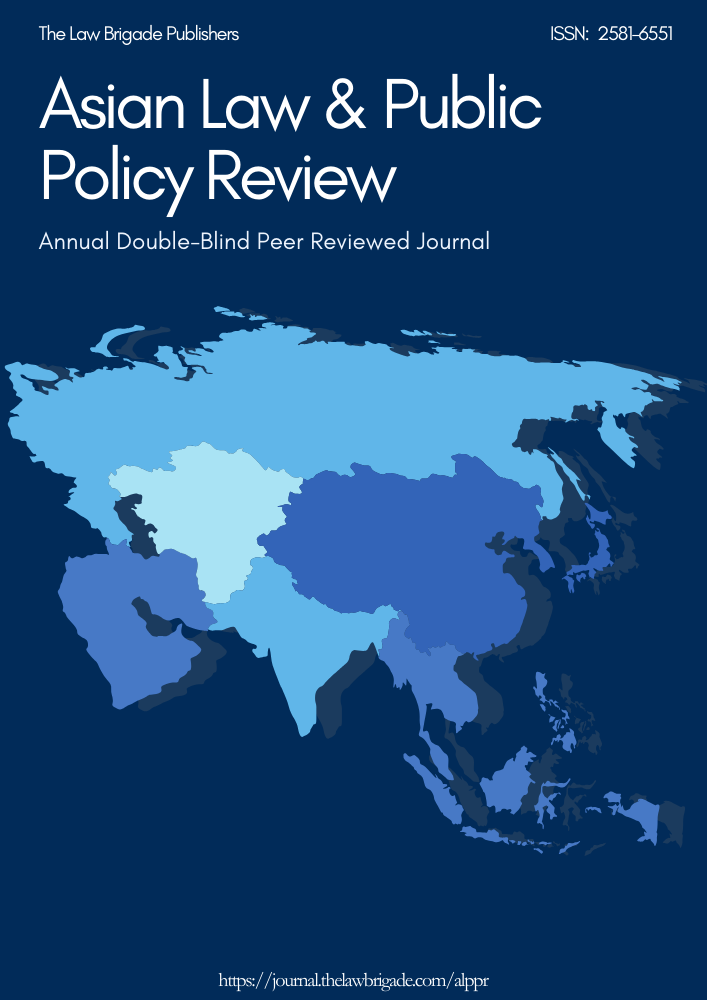Understanding Educational Frameworks: Analyzing the Impact of Privatization on Right to Education (RTE)
Keywords:
Privatization, education, globalization, marginalized communitiesAbstract
Education is an essential instrument for the emancipation of humankind. It plays a significant
role in social and cultural development. Education provides social, economic, cultural and
political rights to the deprived and marginalized communities. Eminent philosophers of
education such as John Dewey, Emile Durkheim, one of the founding fathers of sociology, and
B.R. Ambedkar, the father of the Indian constitution perceived education as a vehicle for social
transformation and as a means of individual and community emancipation. The liberalization,
privatization and globalization policies in the Indian education sector have challenged the
constitutional right to education. This paper aims to explain the impact of privatization and
globalization on the education system in India. It also explains the privatization of education
and its impact on women and marginalized communities. Further, this paper explains changes
in primary and higher education in the post-implementation period of privatization and
globalization policies.
Downloads
References
Abrol, Monika. Emerging Trends of Privatization of Education in India, International
Journal of Educational Administration, ISSN 0976-5883 Volume 8, Number
1, 2016.
Ball, S and Youdell, D. Hidden Privatisation in Public Education. Brussels:
Education International, 2008.
Census Data. Census Data, Office of the Registrar General & Census Commissioner,
India Ministry of Home Affairs, Government of India, 2011,
http://censusindia.gov.in/2011-Common/CensusData2011.html.
Government of India. Educational Statistics At A Glance, National University of
Educational Planning & Administration, New Delhi, 2016, (website:
Indian Constitution. The constitution of India, 2015, https://www.india.gov.in/mygovernment/constitution-india/constitution-india-full-text.
Kurian, Oommen C. India’s missing millions of out of school children: A case of
reality not living up to estimation? Oxfam India, 2 Nov 2015,
https://www.oxfamindia.org/education/Still-too-many-children-out-ofschool.
MHRD. Educational Statistics At A Glance, Government Of India Ministry Of
Human Resource Development Department Of School Education & Literacy
Statistics Division New Delhi 2018,
http://mhrd.gov.in/sites/upload_files/mhrd/files/statistics/ESAG-2018.pdf
MHRD. Enrolment at Primary and Upper Primary Level Increases to 134.38 Million
In 2008-09 From 101.16 Million In 2002-03, 2010,
http://www.schoolreportcards.in/Media/m102.html.
MHRD. Right to Education Act Provisions, 2018, http//mhrd.gov.in/rte.
Raghu, A. The impact of privatization on the present generation of India, in
Privatization of Education (eds.) Neelam Ramnath Kishan, New Delhi, APH
Publishing, 2008.
Reddy, B. Ramachandra, Manchala. C and Amareswaran. N. Privatization of
Education (eds.) Neelam Ramnath Kishan, New Delhi, APH Publishing, 2008.
Right to Education Forum. Status of Implementation of the Right of Children to Free
and Compulsory Education Act, 2009: Year Five (2014-15), 2015,
http://www.rteforumindia.org/sites/default/files/pdf/RTEFD/RTE%20Report
s/Report_2014-15.PDF.
Downloads
Published
Issue
Section
License

This work is licensed under a Creative Commons Attribution-NonCommercial-ShareAlike 4.0 International License.
License Terms
Ownership and Licensing:
Authors of research papers submitted to any journal published by The Law Brigade Publishers retain the copyright of their work while granting the journal specific rights. Authors maintain ownership of the copyright and grant the journal the right of first publication. Simultaneously, authors agree to license their research papers under the Creative Commons Attribution-ShareAlike 4.0 International (CC BY-SA 4.0) License.
License Permissions:
Under the CC BY-SA 4.0 License, others are permitted to share and adapt the work, even for commercial purposes, provided that appropriate attribution is given to the authors, and acknowledgment is made of the initial publication by The Law Brigade Publishers. This license encourages the broad dissemination and reuse of research papers while ensuring that the original work is properly credited.
Additional Distribution Arrangements:
Authors are free to enter into separate, non-exclusive contractual arrangements for distributing the published version of the work (e.g., posting it to institutional repositories or publishing it in books), provided that the original publication by The Law Brigade Publishers is acknowledged.
Online Posting:
Authors are encouraged to share their work online (e.g., in institutional repositories or on personal websites) both prior to submission and after publication. This practice can facilitate productive exchanges and increase the visibility and citation of the work.
Responsibility and Liability:
Authors are responsible for ensuring that their submitted research papers do not infringe on the copyright, privacy, or other rights of third parties. The Law Brigade Publishers disclaims any liability for any copyright infringement or violation of third-party rights within the submitted research papers.


